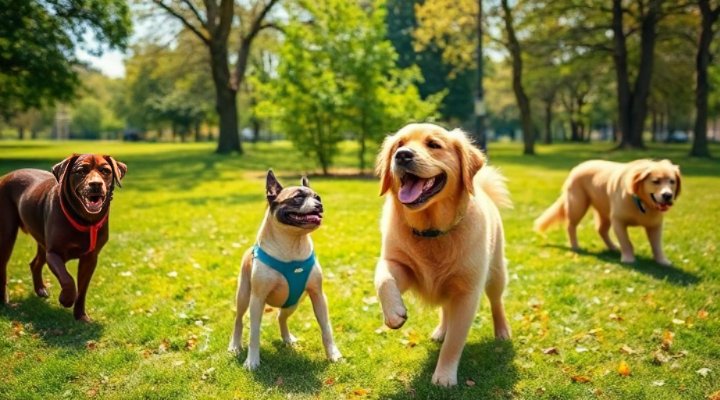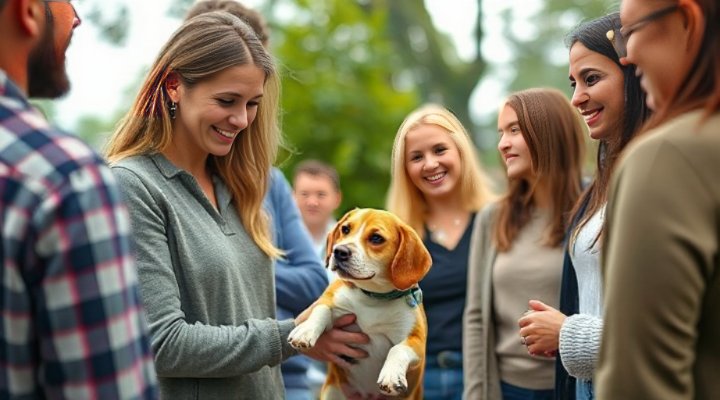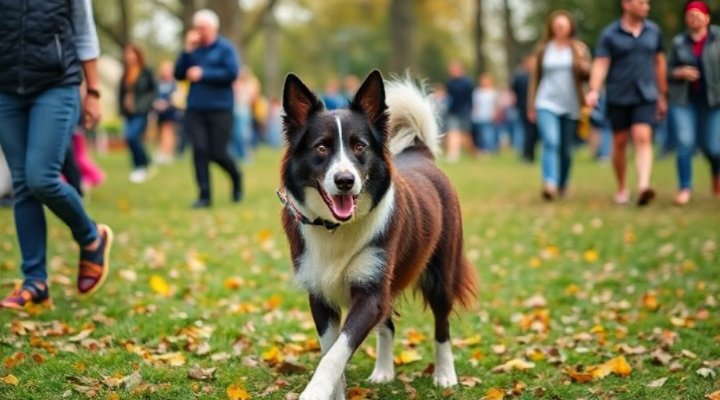Dog socialization is one of the most important aspects of raising a well-adjusted pet. Whether you have a new puppy or an adult dog, proper socialization techniques can make all the difference in how your furry friend interacts with the world. In this comprehensive guide, we’ll explore essential dog socialization tips to help your pet become confident and friendly in various situations.

Why Dog Socialization Matters
Socializing your dog isn’t just about making them friendly – it’s about helping them feel secure and comfortable in different environments. A well-socialized dog is less likely to develop behavioral problems like aggression or excessive fear. According to the American Veterinary Medical Association, early socialization can prevent many common behavior issues in dogs.
From my own experience with my Labrador, Max, I can attest that the time invested in socialization pays off tremendously. Max went from being a shy puppy to a confident dog who enjoys trips to the pet store, meets new people enthusiastically, and gets along well with other dogs at our local dog park.

When to Start Socializing Your Dog
The ideal time to begin socializing your dog is during their critical socialization period, which typically occurs between 3 and 14 weeks of age. However, older dogs can and should be socialized too – it just might take more patience and consistency.
If you’re bringing home a new puppy, check out our guide on best dog breeds for first-time owners for additional tips on raising your new companion.

Essential Dog Socialization Tips
1. Start Slowly and Positively
Introduce your dog to new experiences gradually. For example, if you want them to meet new people, start with just one or two calm individuals before progressing to larger groups. Always pair new experiences with positive reinforcement like treats or praise.
2. Expose Them to Various Environments
Take your dog to different locations – parks, pet-friendly stores, urban areas, and quiet neighborhoods. This helps them become comfortable in various settings. Remember our article on how to teach your dog to walk on a leash? Mastering leash walking first makes these outings much easier.

3. Introduce Them to Other Animals
Socializing isn’t just about people – dogs need to learn how to interact appropriately with other animals too. Start with controlled meetings with known, vaccinated dogs before progressing to dog parks or group settings.
4. Make Vet Visits Positive
Many dogs develop fear of vet clinics. Help prevent this by making occasional ‘happy visits’ where they just get treats and pets from the staff without any procedures. The ASPCA recommends this approach to create positive associations.

Common Socialization Challenges and Solutions
Even with the best efforts, you might encounter some challenges in socializing your dog. Here’s how to handle common issues:
- Fearfulness: Go slower and use higher-value treats. Never force interactions.
- Overexcitement: Practice calm behaviors before social situations. Our guide on teaching your dog not to jump can help with this.
- Aggression: Consult a professional trainer or behaviorist immediately.
Maintaining Social Skills Over Time
Socialization isn’t a one-time event – it’s an ongoing process. Continue exposing your dog to new experiences throughout their life to maintain their social skills. Regular visits to dog socialization classes can provide structured opportunities for interaction.
Remember, every dog is unique. What works for one might not work for another. Be patient, consistent, and always prioritize your dog’s comfort and safety.
Related Keywords: dog socialization techniques, socializing puppies, dog behavior training, introducing dogs to new people, dog park etiquette
